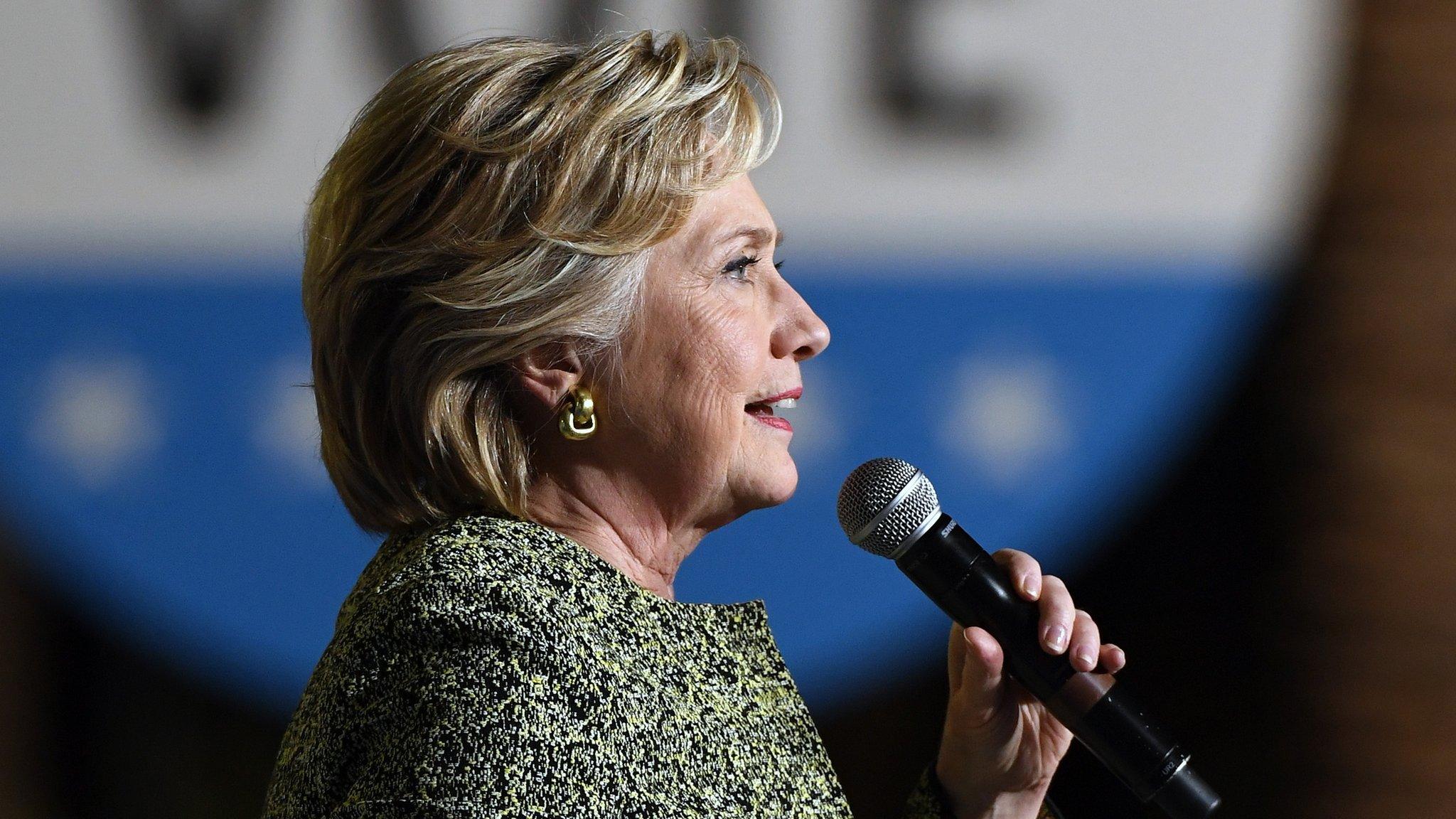Trump election: US 'identifies agents behind Russian hack'
- Published
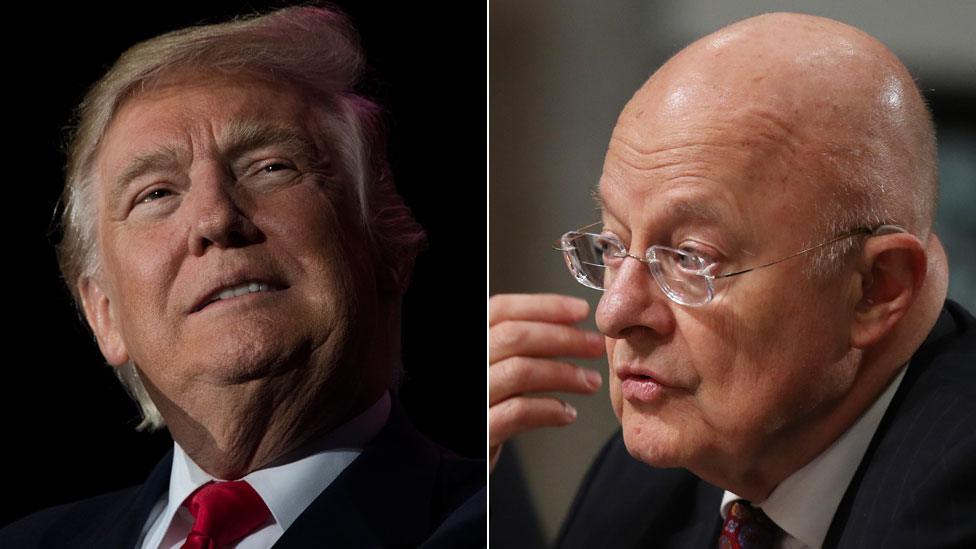
Donald Trump has cast doubt on the findings of the intelligence agencies co-ordinated by Gen James Clapper (right)
The US has identified the Russian agents behind alleged hacking ahead of the presidential election won by Donald Trump in November, reports say.
The agents, whose names have not been released, are alleged to have sent stolen Democratic emails to WikiLeaks to try to swing the vote for Mr Trump.
Russia denies any involvement and WikiLeaks founder Julian Assange says Moscow was not the source.
Intelligence officials are due to brief Mr Trump, who doubts the claims, later.
Vice-President Joe Biden lambasted the president-elect on Thursday for attacking the intelligence community over the claims, saying it was "absolutely mindless" not to have faith in the agencies.
At about the same time, President-elect Trump appeared to question the intelligence agencies' findings in a tweet, external, asking why they decided not to request to examine computers belonging to the Democratic National Committee (DNC).
What are the hacking allegations?
Mr Biden said he had read a US intelligence report outlining Russian involvement, the details of which are emerging in US media.
According to CNN, external, the Washington Post, external and NBC News , externalciting intelligence sources, agencies had intercepted communications in the aftermath of the election showing senior Russian government officials celebrating Donald Trump's win over rival Hillary Clinton.
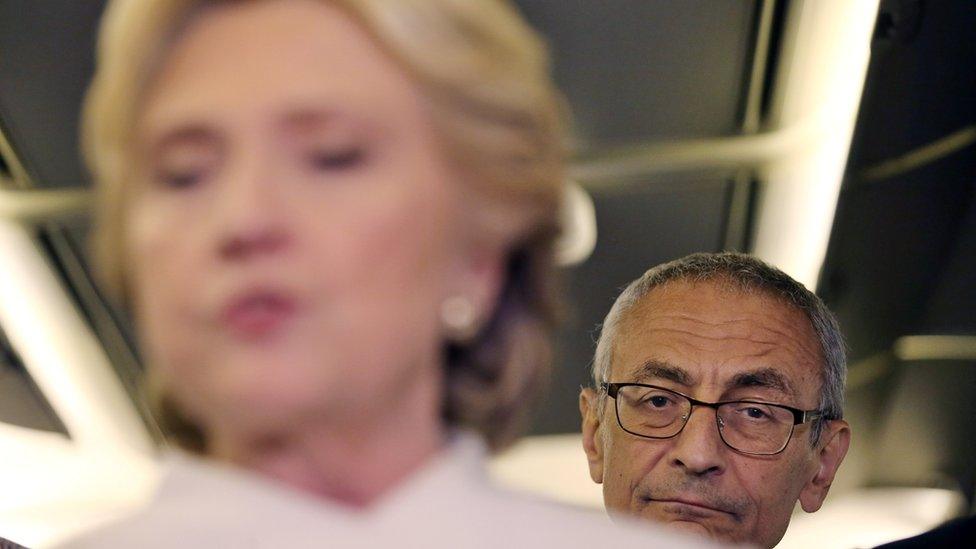
John Podesta, Hillary Clinton's campaign manager, was targeted in the hack
They had also identified go-betweens who delivered stolen Democratic emails to the Wikileaks website, sources said, without providing further details.
NBC News says the alleged Russian hacking targeted not just the DNC but also the White House, joint chiefs of staff, the department of state and large US corporations.
National Intelligence Director Gen James Clapper, CIA Director John Brennan and FBI Director James Comey are due to brief President-elect Trump on the report in New York on Friday.
An unclassified version will be made public next week.
What do US politicians say?
Vice-President Joe Biden told the PBS network, external that the report clearly confirmed Russia had tried to "discredit the US electoral process" as part of a systematic campaign to undermine Mrs Clinton.
Her campaign manager, John Podesta, was among those whose emails were hacked, as well as the DNC.
Mr Biden also criticised Mr Trump for ignoring intelligence on the hack.
"The idea that you may know more than the intelligence community knows - it's like saying I know more about physics than my professor. I didn't read the book, I just know I know more."
Gen Clapper told a hearing of the Senate Armed Services Committee on Thursday that Russian President Vladimir Putin had ordered the hack, and said the motive would be revealed next week.
Republican Senator John McCain, a leading Russia critic in Congress who chaired the hearing, said it was in the interests of all Americans to confront the problem of foreign hacking.
"There is no national security interest more vital to the US than the ability to hold free and fair elections without foreign interference."
Last week President Barack Obama ordered the expulsion of 35 Russian diplomats from the US over the alleged hacking. Russia has said it will not reciprocate.
What's Mr Trump's view?
Mr Trump has repeatedly rejected allegations that the Russian government was behind the hacks.
On Wednesday, he repeated a suggestion that "a 14-year-old" may have been responsible for the breach.
On Thursday, he said he was a "big fan" of intelligence agencies, but later went on to raise questions about how they responded to the security breach.
Obama's former director of cyber security warns Russia hacking could be used as "playbook"
Mr Trump promised last week to reveal information about the hacking, but no announcement came.
His inauguration will take place on 20 January.
What about Russian media? By BBC Monitoring
The pro-Kremlin media line is that the US authorities have failed to present any evidence to substantiate their presidential campaign hacking accusations.
The official Rossiya 24 TV channel says the "US secret services have still not supplied a single piece of evidence", while the popular Gazeta.ru web site says Washington has "still not provided any convincing technical data".
Opposition websites largely cover what the major US networks are reporting, and all note the Kremlin's denial of involvement.
US reports focus on national security
US media have been voicing concern over the growing divide between their president-elect and the US intelligence community, with the New York Times editorial board, external singling out Mr Trump's refusal to accept regular intelligence briefings.
"He is effectively working to delegitimise institutions whose jobs involve reporting on risks, threats and facts that a president needs to keep the nation safe."
The Washington Post's David Ignatius, external views the coming days as a test to see just how supportive of the intelligence system "Trump really is", comparing his response to hacking claims to the "sort of information fog... Moscow seeks to spawn in its own propaganda campaigns".
Fox News' Chris Stirewalt, external says that after James Clapper's testimony, it is "clear the nation's spies are not going to let Trump & Co off the hook here. Their competency, integrity and patriotism have been called into question, and they are not going to let the matter be tabled."
- Published6 January 2017
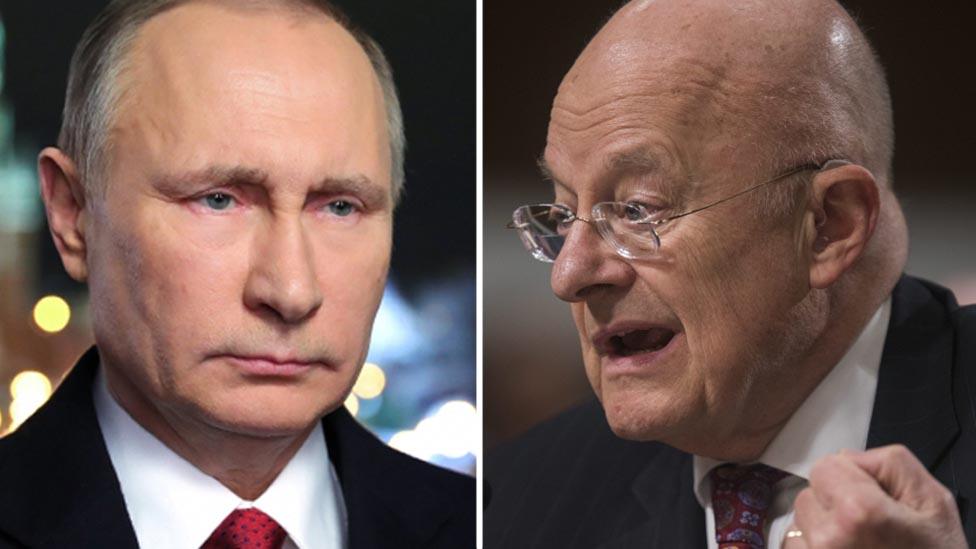
- Published4 January 2017
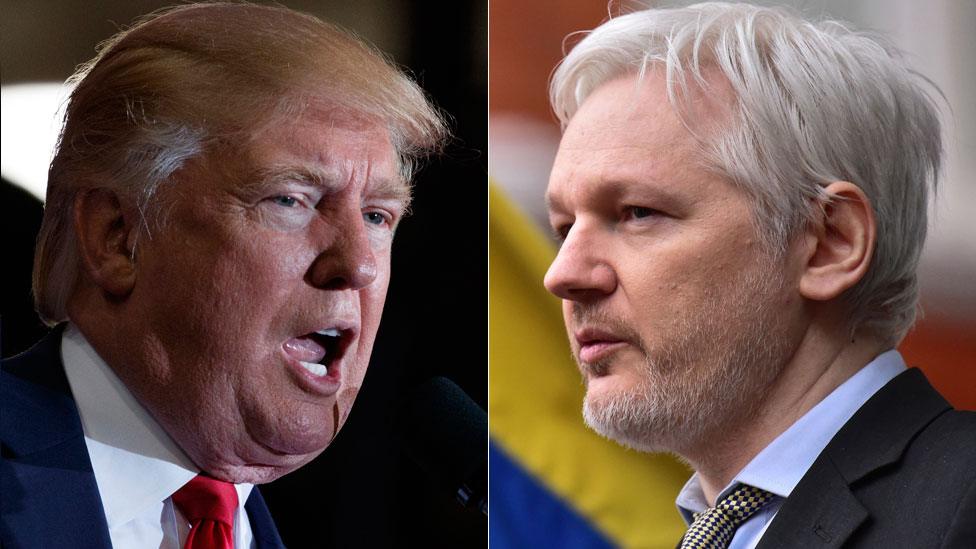
- Published22 December 2016
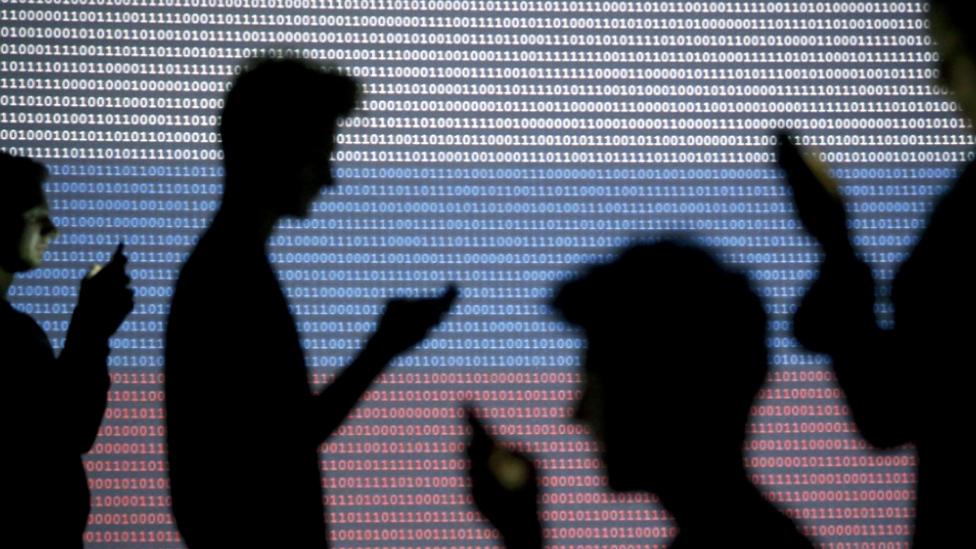
- Published27 October 2016
